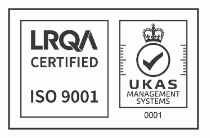As the human species continues to advance, industrialise, and develop new technologies, the environment continues to bear the cost. The effect of mankind’s impact on the planet, through climate change and environmental degradation, is already being felt by many and the worsening situation poses an existential threat to people from all walks of life. From the more immediately-felt effects such as rising unemployment, higher costs-of-living, food shortages, worsening housing crises, and pollution-induced health complications, to the more catastrophic results like extreme weather events, rising sea levels, and ecosystem collapse, everyone everywhere will be effected.
Europe is no exception. The European Commission has openly acknowledged the threat posed by climate change and has recognised the necessity of immediate wide-ranging action to curb the worsening degradation of the environment. This action will be spearheaded through the European Green Deal which has received wide support and acclaim from the European Council, the European Parliament, and the general public. The Green Deal ambitiously sets the goal of making Europe the first climate-neutral continent by 2050.
It’s aim is to serve as a growth strategy to transform the EU into a modern, resource-efficient and competitive economy with no net emissions of greenhouse gases by 2050, where economic growth is decoupled from resource use, all the while taking necessary precautions to ensure no person or place gets left behind. A sustainable economy is being pursued, through boosting the efficient use of resources and moving to a clean circular economy, while simultaneously restoring biodiversity and cutting pollution.
Of particular concern to the EU’s climate strategy is the ever-growing digital sector of the economy. The digital technology industry is one of the most unsustainable and environmentally damaging industrial sectors of the present day with unsustainability being a prevalent issue at many levels of the digital product lifecycle. The production of digital technology depends on the extraction of many rare minerals, which not only are in limited supply but the extraction process is extremely detrimental to the environment, not to mention causes numerous social issues in the third world countries from which they are mined. Our ever-increasing dependency on digital technology further drives up the electricity demand for industry and society, leading to higher levels of energy consumption. Disposal of electronic waste is also a major issue, as these massive volumes of waste are often hazardous and offer significant challenges for recycling. The demand for production of digital goods is exacerbated due to the tech-industry being built on the principle of replacement rather than repair, and the continual need for hardware upgrades driven by software development.
Therefore as part of its goals, the European Green Deal is seeking to invest in green computing (or green ICT) – a concept that pursues environmentally sustainable production, use and disposal of computing equipment. Green ICT is essential to the EU’s goals of achieving a circular economy where resources are continually reused, and waste is eliminated. Amongst some of its goals the Commission has put forward plans to ensure that electronic products placed on the EU market are designed to last longer and are easier to repair, upgrade, recycle and reuse. Another plan is to provide incentives for product-as-a-service, where companies will maintain the ownership and responsibility of a product throughout its lifecycle.
The Horizon Cloud (H-CLOUD) is one particular EU project which AcrossLimits are strongly involved in, where green ICT is being pursued at the European level. H-CLOUD aims to inform the European Commission and relevant stakeholders of the best strategies in implementing cloud computing in Europe to pursue a common direction towards a European Cloud agenda.
H-CLOUD was specifically tasked to research green computing, to develop potential policies for cloud computing as a means of reducing the environmental impact of the digital sector, in line with the Green Deal objectives. One such problem-area tackled by H-CLOUD is the necessity of developing global energy efficiency standards to evaluate data centres – a task which is currently impossible due the distribution and diversity of data centres, but which will be facilitated through the centralisation of data and creation of closed systems, as enabled by cloud computing. The development of such policies, facilitated by H-CLOUD, are a necessary step in ensuring better waste management and in moving towards a circular economy within the European digital sector.
The potential of green technology, such as identified through H-CLOUD, in pursuing the Green Deal objectives and creating employment opportunities, will be discussed at the European Researchers’ Night, presented by our very own Sustainability & Policy Consultant, Steve Robertshaw on Friday 27th November 2020.
The European Green Deal: Career Opportunities through Green Technologies webinar is open for registration. Join us as we go deeper on this topic and discuss how research can contribute to artificial intelligence and create employment opportunities. Click here to register: https://bit.ly/36URfjc
Relevant Links:
- More on Cloud Computing and H-Cloud: https://www.acrosslimits.com/cloud-computing-and-its-future-in-europe/
- The European Green Deal: https://ec.europa.eu/info/strategy/priorities-2019-2024/european-green-deal_en
- European Researcher’s Night: https://ec.europa.eu/research/mariecurieactions/actions/european-researchers-night_en
- Digital Technologies Are Part of the Climate Change Problem: https://www.ictworks.org/digital-technologies-climate-change-problem/



